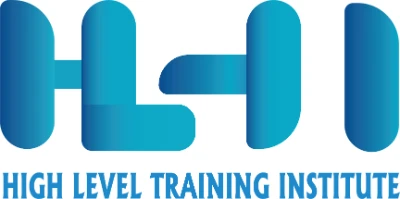CECP Certified Ethics and Compliance Professional
The corporate world can be a high-risk and challenging environment that demands a proactive compliance approach. Being certified in this dynamic, changing profession can help mitigate compliance-related risks. Hence, this training program helps employees understand the ethical standards and legal requirements of their job and is designed to ensure that employees are aware of the…
Original price was: $4,190.00.$3,790.00Current price is: $3,790.00.
Location: Kuwait City, Kuwait
Course Overview
The corporate world can be a high-risk and challenging environment that demands a proactive compliance approach. Being certified in this dynamic, changing profession can help mitigate compliance-related risks. Hence, this training program helps employees understand the ethical standards and legal requirements of their job and is designed to ensure that employees are aware of the importance of behaving ethically and complying with laws and regulations, and it can help to reduce the risk of legal and ethical violations through the operation of effective compliance programs.
In summary, ethics and compliance training is designed to educate employees on ethical behavior and legal requirements in the workplace, reduce the risk of legal and ethical violations, and promote a culture of ethical behavior within the organization.
Benefits of Attending
- Increased awareness of ethical and legal standards: understand the importance of adhering to ethical and legal standards in their work. This can help them to avoid engaging in unethical or illegal behaviour and to recognize potential ethical dilemmas.
- Improved decision-making: understanding of the ethical and legal issues they may encounter in their jobs. This can help them to make more informed decisions and to act in the best interests of the organization, its customers, and other stakeholders.
- Enhanced productivity: be aware of ethical and legal standards and feel committed to upholding them, they are more likely to be engaged in their work and to be more productive.
- Improved morale and job satisfaction: create a more positive work environment by promoting a culture of ethical behaviour and compliance with laws and regulations. This can lead to improved morale and job satisfaction among employees.
- Reduced risk of legal and ethical violations: gain a better understanding of the legal and ethical standards that apply to their work. This can help to reduce the risk of legal and ethical violations that could harm the organization and its reputation.
Who Should Attend
This highly practical course has been specifically designed for:
- Ethics Managers
- Corporate Social Responsibility Directors
- Compliance Officers/Managers and their Deputies
- Managers with responsibility for internal compliance controls
- Legal Compliance
- Managers and Executives
- Professionals Risk Managers
- Legal Advisers and Lawyers
- Auditors and Audit Managers
- Regulatory Representatives
- Accountants
- Company Secretaries
- Corporate Affairs
Monitoring Evaluation Directors and Managers Administrators and shareholders who would like to keep abreast of corporate governance and regulatory issues.
Certification Body

The GAFM was founded in 1996 by the original founders of the Graduate Leadership Society. The Founders of our Standards Board are CEOs, Executives, Professors, and industry experts from around the globe. We desire to raise education standards and ethics in the business and management industries. The Standards Policy Board awards specialized board certifications, designations, and charters in the fields of: finance, accounting, management, and consulting fields to qualified professionals who have completed internationally recognized or accredited exams & education, government recognized degrees and documented management credentials and experience. Since 1996, the Academy has been promoting accredited graduate standards for certification in business, management, law, and finance. Since the inception with the founding of the Graduate Institute of Leadership in 1996, the Academy has been focused on quality assurance with accredited education, exams, assessment, education, ethics, and continuing education. Further, applicants must also have the necessary experience in practice, research or publications in their respective areas of expertise.

